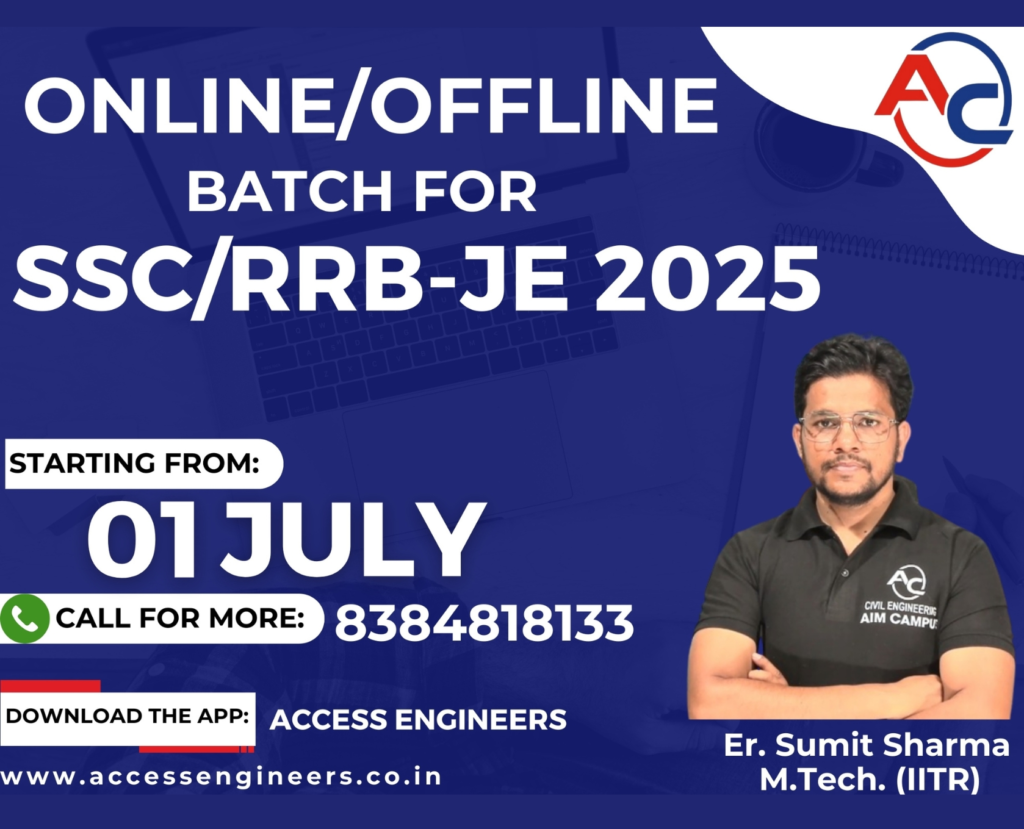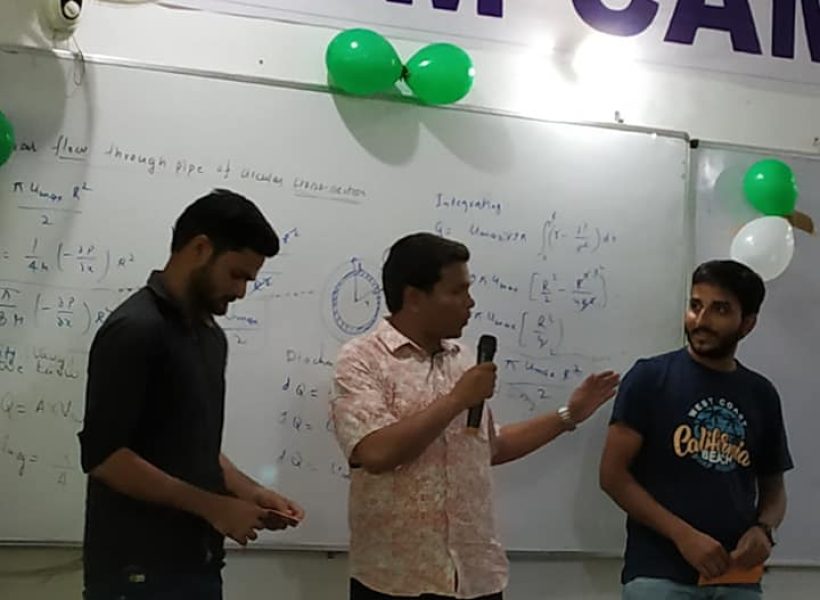
The RRB conducts different exams to recruit candidates for various posts like Junior Engineers, Assistant Loco Pilot (ALP), technician, NTPC under the Indian Railway Ministry.

Civil engineering, the profession of designing and executing structural works that serve the general public.
Mechanical engineering is one of the broadest engineering disciplines
Offers original research articles and insightful reviews.
Current Affairs, General Knowledge, including topics related to-
The General Studies and General Aptitude section tests the candidate’s knowledge of current events, history, geography, politics, and their logical reasoning and analytical skills. This section is common across all engineering disciplines.
The General Studies and General Aptitude section tests the candidate’s knowledge of current events, history, geography, politics, and their logical reasoning and analytical skills. This section is common across all engineering disciplines.

Candidates must have a diploma or degree in engineering in the relevant discipline from a recognized institution. Additionally, they must meet the age limit criteria specified in the official notification.

At Aim Campus, our mission is to assist you in mastering the NHPC-JE Exam syllabus. Utilize our resources, study materials, and guidance to excel in the NHPC-JE Exam. Explore our necessary syllabus breakdown and cover your way toward a successful career as a junior engineer with NHPC.
1. Expert Faculty: Benefit from our team of highly qualified and experienced instructors who are dedicated to nurturing the talents of future engineers. They bring real-world insights and passion into the classroom, ensuring you receive the best education possible.
2. State-of-the-Art Infrastructure: Enjoy access to cutting-edge facilities including modern laboratories, extensive libraries, and advanced technological resources. Our campus provides an ideal environment for hands-on learning and research, preparing you for the challenges of a dynamic industry.
3. Commitment to Quality Education: At AIM Campus, we prioritize academic excellence and practical skills development. Our programs are designed to equip you with the knowledge and experience needed to succeed in your chosen field.
4. Supportive Learning Environment: Experience a supportive community where small class sizes and personalized attention foster your academic growth and professional development. We offer comprehensive student support services including career counseling and job placement assistance.
5. Global Opportunities: Explore international perspectives through exchange programs and collaborations with leading universities worldwide. Expand your horizons and gain valuable insights into global trends and innovations.
Exploring common inquiries about Aim Campus can provide valuable insights into our programs, campus life, and student support services. Here are answers to some frequently asked questions
We offer a wide range of undergraduate and graduate programs across various disciplines, including business, sciences, arts, and engineering. Check our website for a complete list of programs.
We provide academic advising, tutoring services, health and counseling services, disability support, and more to ensure our students' well-being and success.
Yes, students have access to research facilities and opportunities to collaborate with faculty on research projects in various fields.
Yes, we have dedicated career services to help students with resume writing, interview preparation, internship placements, and networking opportunities with employers.
Our campus offers a vibrant community with numerous clubs, organizations, and events. We have modern facilities, including libraries, recreational areas, and dining options.
Undergraduate degrees typically include Bachelor of Arts (B.A.) focusing on humanities and social sciences, Bachelor of Science (B.S.) emphasizing natural sciences and technical fields, Bachelor of Business Administration (B.B.A.) focusing on business disciplines, and specialized degrees like Bachelor of Engineering (B.Eng.), Bachelor of Fine Arts (B.F.A.), Bachelor of Education (B.Ed.), Bachelor of Nursing (B.N.), and Bachelor of Architecture (B.Arch.), each tailored to specific career paths and academic interests.

At AIM Campus Roorkee, we are dedicated to nurturing future leaders, innovators, and change-makers. Our commitment to academic excellence, coupled with a student-centric approach, ensures that every individual receives a well-rounded education that prepares them to face the challenges of the dynamic global landscape.
Copyright © 2024 aimcampus || created by Connectwith